The Growth Of Smart Home Solutions In India
📖 Learning
Smart home solutions use gadgets such as sensors, highlights, and different apparatuses associated with the Internet of things (IoT) that can be remotely checked, controlled, and manipulated as required. Smart home solutions represent self-monitoring analysis and reporting technology. The innovation was initially created by IBM for predictive disappointment analysis.
The contemporary Smart home solution items became accessible to customers from 1998 and the mid-2000s. Smart home solution enables clients to remotely control and manipulate their home gadgets using specialized applications, cell phones, or other organized devices.
Such solutions take into consideration efficiency of electricity use while guaranteeing your home's security. Smart home solutions are an essential component for building "smart cities".
Evolution Of Smart Home Solutions
Smart Home Market In India
Promising Startups Dealing With Smart Home Solutions In India
Expected Growth Of Smart Home Market In India
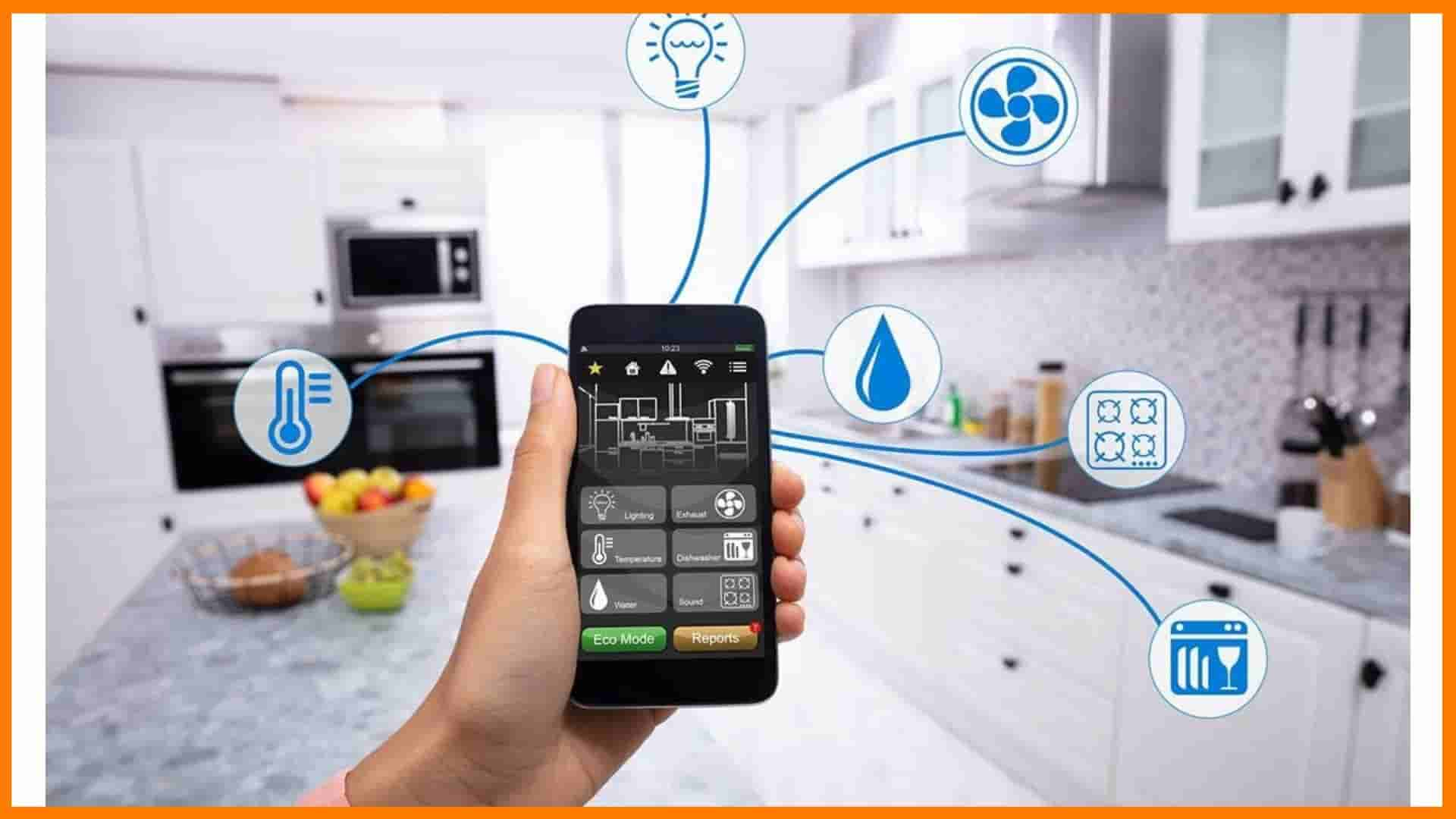
Evolution Of Smart Home Solutions
A Smart home solution furnishes property holders with security, comfort, vitality proficiency, and accommodation. The expression "savvy home" is used to portray a living arrangement that has lighting, apparatuses, warming, TVs, cooling, diversion sound, and video frameworks, PCs, cameras, and security frameworks that can speak with each other and be remotely controlled from any room in the home, just as remotely from any area using a cell phone or the web. Smart home solution empowers clients to spare vitality by controlling lighting, HVAC frameworks, window covers, and water system. Property holders can get to the frameworks with the assistance of the web from any location.
The smart home solution is not a new creation. It has been predominant as an idea among shoppers and industry specialists. The smart home idea began with the development of remote controls, disclosed by Nikola Tesla in 1898. In 1901, the primary vacuum cleaner was presented, trailed by garments dryers, clothes washers, coolers, and electric dishwashers. These were not "smart" machines, yet their presentation was a distinct advantage for the individuals of the twentieth century.
During the 1930s, innovators directed their concentration towards home mechanization advancements; yet the thought didn't emerge until 1966 when Echo IV, the main Smart robotization framework, was created. This gadget enabled buyers to register shopping records, control room temperature, and switch on and off machines.
In 1991, "gerontechnology" was presented which joined gerontology with innovation for making the lives of senior citizens simpler. A few innovations were presented in this segment during the 1990s. The mid-2000s were set apart by the quick increment in the fame of smart home solutions. Various advances rose and were gradually incorporated into homes. Smart homes began to wind up reasonable alternatives thereafter.
Home systems administration, local advancements, and different other customer devices wound up accessible. Smart home mechanization is omnipresent in the present market. Buyers are presently ready to control temperature, TVs, lights, entryways, remote controllers and cell phones.

Smart Home Market In India
The smart home market in India has seen significant developments. Home computerization was considered as a business of rich individuals a couple of years back. And it was all valid as the expense of robotization was not in any manner reasonable to the pockets of the enormous populous in India. The circumstance has turned around completely, and a pattern of mechanization is now occurring in the nation. With the expanding need for solace and straightforwardness alongside rising expendable wages of individuals living in metro urban areas, the market for savvy homes continues to grow.
As indicated by "India Smart Home Market Outlook, 2021", the smart home market in India has developed altogether over the period from 2014 to 2017. The smart home market which comprises of chiefly three portions (commercial, hospitality, and residential) has seen a higher selection of proportion of mechanization in the neighborliness division. Even though the portion of the business fragment is extremely less, it has enrolled the most elevated development in the last two years.
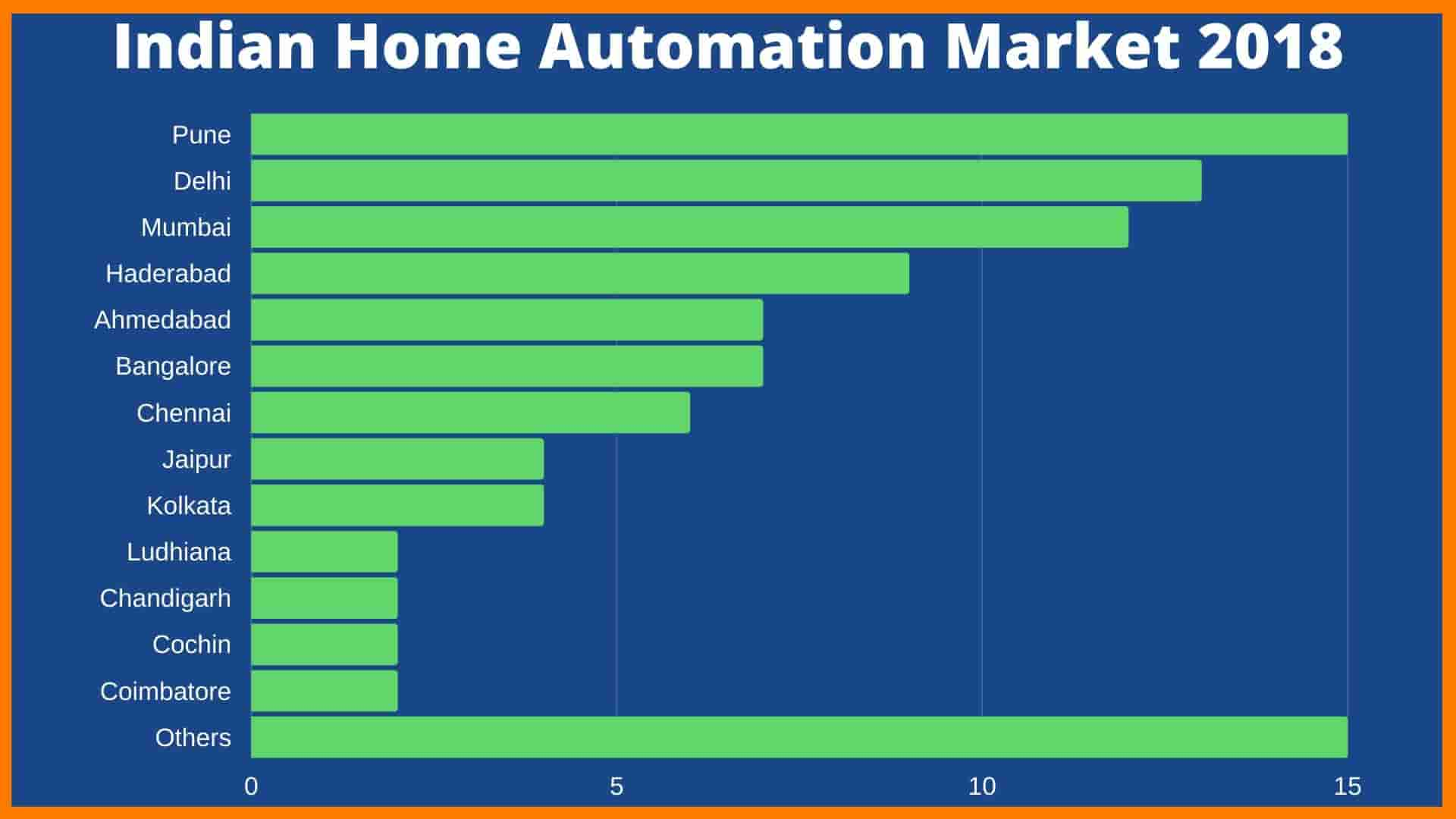
The private market, on the other hand, is moving upwards with a standard pace. The other benefit for the market is the presentation of retrofit robotization arrangements. The significant disadvantage for the private portion was the significant expense of robotization arrangements which have now radically caught retrofit arrangements that cost as low as INR 3600. In metro and level-1 urban areas, new lodging plans are being created with home computerization frameworks according to the client's necessity.
The accommodation in the private market for computerization is going to increment in future. Control4, Crestron and Lutron GL are among the top producers offering robotization gadgets in India. The retrofit arrangements are significantly being offered by these new companies which are growing tremendously. Silvan Labs, Inoho, and Pert are the top new smart home solutions companies in India.
Key Segments
- Residential Smart Home.
- New/Entire Home Automation.
- Retrofit Home Automation.
- Hospitality Smart Home.
- Hotel Exterior & Lobby Market.
- Hotel Rooms.
- Commercial Smart Home.
Key Categories
- Lighting.
- Blinds.
- Hubs/Server.
- Entertainment (Audio/Video).
- Security/Access.
- Energy Management.
- Others.
Promising Startups Dealing With Smart Home Solutions In India
As indicated by a report distributed by RedSeer Consulting, the home computerization showcase in India is quickly developing and reached INR 8800 crores by 2017. The key development drivers for this interest are expanding customer mindfulness and money related capacity, item advancements (like PDA applications), manufacturers' prerequisite for market separation, and an expansion in the inclination for vitality productive frameworks. There are numerous players in this field, for example, Oakter, Inoho, IFIHOMES.com, Silvan Innovation Labs, eDomotics, SharpNode, Home Brain, MSK Technology, Thasmai Automation, and Metagan.
Oakter
Oakter, a tech startup based out of Noida, was established in 2014 by IITians Varun Gupta, Nithin David, and Shishir Gupta. The startup is settling innovation issues in Indian homes. The organization improves and fabricates plug-and-play savvy home items. Oakter hoists life by better home administration. Offerings begin at INR 2,800 and give allows clients to control home apparatus such an espresso machine.
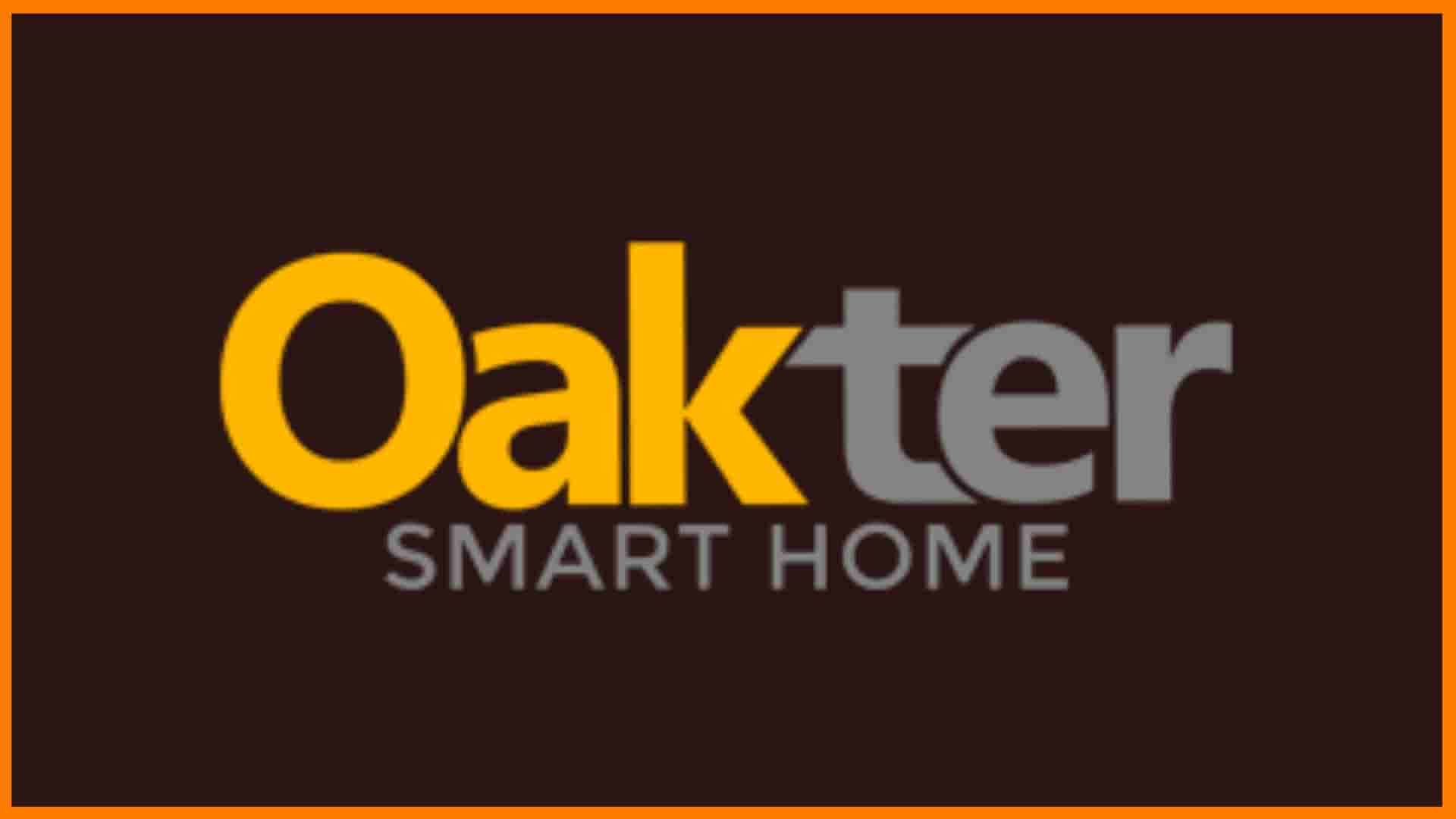
Clients can begin with a couple of home apparatus and after that continue developing their savvy home involvement. Oakter principally sells through online channels; its products are accessible on web-based business stages like Flipkart and Amazon. However, extreme deals are through their site.
Mr. Shishir Gupta, CEO of Oakter stated, "We trust IoT will achieve comparable profitability gains for the home condition in the following 10 years, as found in the workplace after the approach of PCs and Internet. Home apparatuses haven't improved much in the most recent 30 years, however times they are going to change very soon." The organization got subsidizing from India-Quotient, Spice Group, Sachin Bansal, Binny Bansal, Rajul Garg, and a couple of other financial specialists.
Inoho
Bangalore-based Inoho was established in January 2014 by Deep Singh (IIT Guwahati), and Deepankar Garg (IIT Guwahati, IIM Ahmedabad). It later roped in Gagan Singh into its core team.
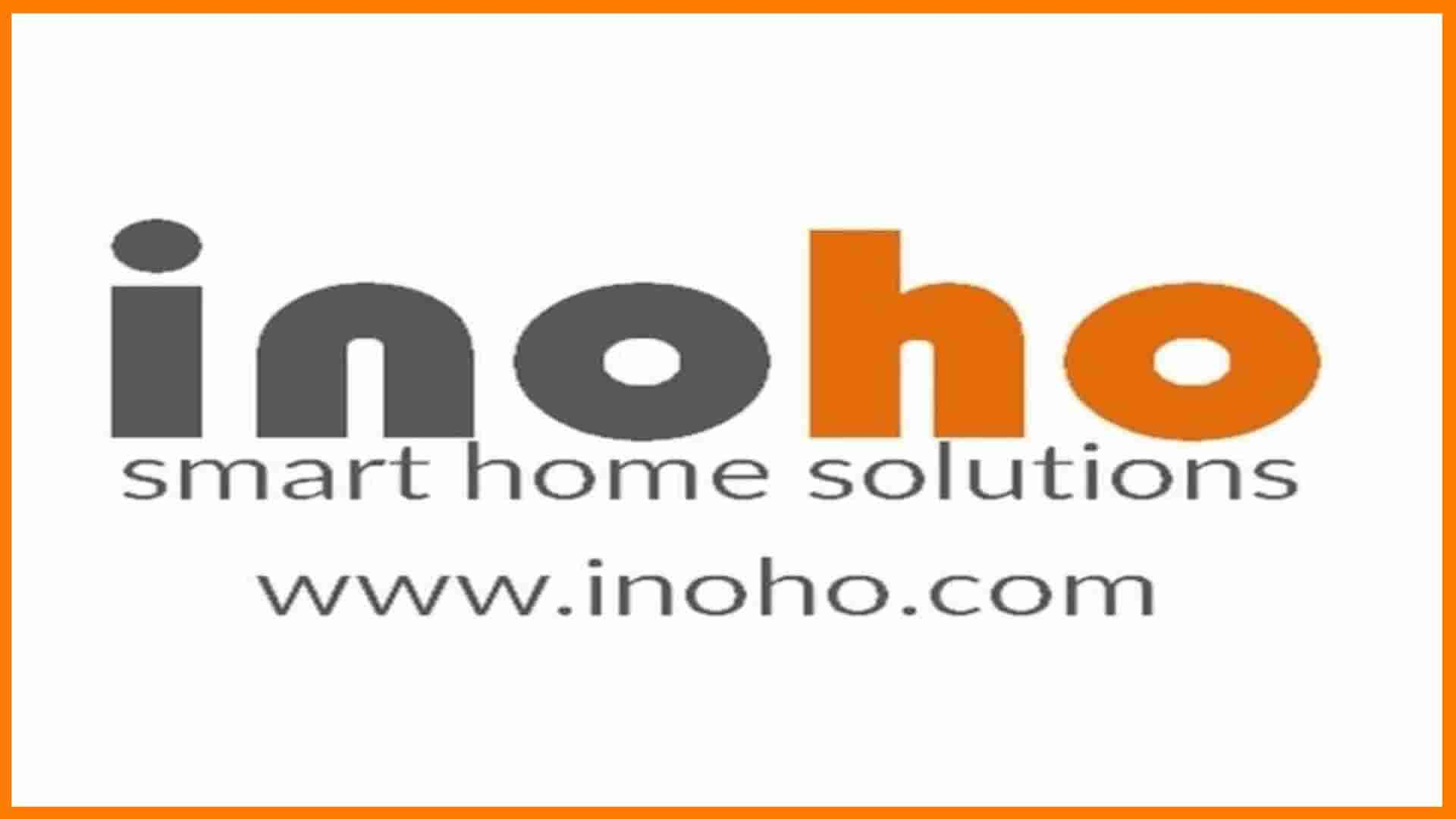
Inoho is a startup in the space of smart homes. It enables clients to control light, fans, springs, ACs, and so other elements using cell phones. The management of devices is possible over the web, giving the client the entrance to his home from any place on the planet. The client can set timetables, time, or control the devices on an ad-hoc basis. Inoho is bootstrapped until now. The startup adapts by selling smart home enablers and worth included administrations.
Ifihomes.com
Launched in 2013, Bangalore-based IFIHomes.com is an organization concentrating on the dispersion of innovation controlled Smart Living items to Indian customers. Discussing the backstory, IFIHOMES.com's founder Rohit Khosla referred to a few lines from the company's website, "We began with only a thought and an enthusiasm to make life straightforward and secure of individuals around us. Being a technocrat we are elevating innovation to get that going.
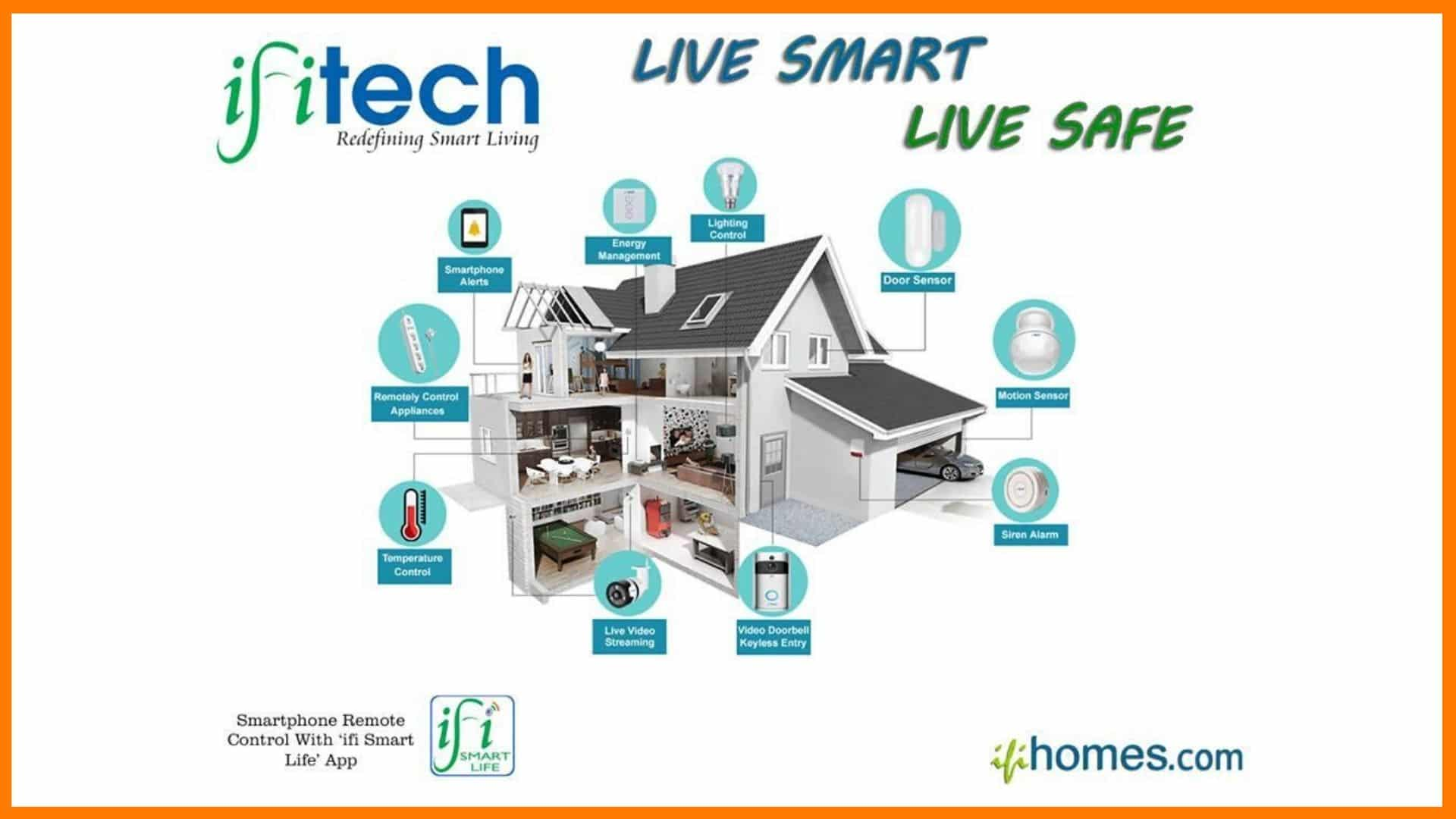
The vision and want are to teach society about the items and arrangements that would enable them to carry on with a superior life. As the market is in the beginning time and very few dependable and certified items are accessible to an end shopper, subsequently we have likewise taken up the activity to advance quality items and administrations to make living basic and secure. We accentuate the possibility of DIY (do it without anyone else's help) as a feature of the instruction.
The majority of the items that we are advancing are basic and thus can be introduced with close to nothing/fundamental electrical switch introduce information." The organization sells 100% quality tech solutions with a guarantee. The firm has smart solutions for switches, lights, solar lights, and accessories. It additionally has a wide scope of network cameras for both indoor and outside use. IFIHomes.com plans to include more items soon.
Silvan Innovation Labs
Bengaluru-based home-mechanization arrangements firm Silvan Innovation Labs was launched in 2008 and creates video observation, investigation, and home computerization solutions. Its items have been used by organizations such as Sobha, Brigade, Nambiar Builders, Total Environment, Tata Housing, and Lodha (as mentioned on Silvan's site).
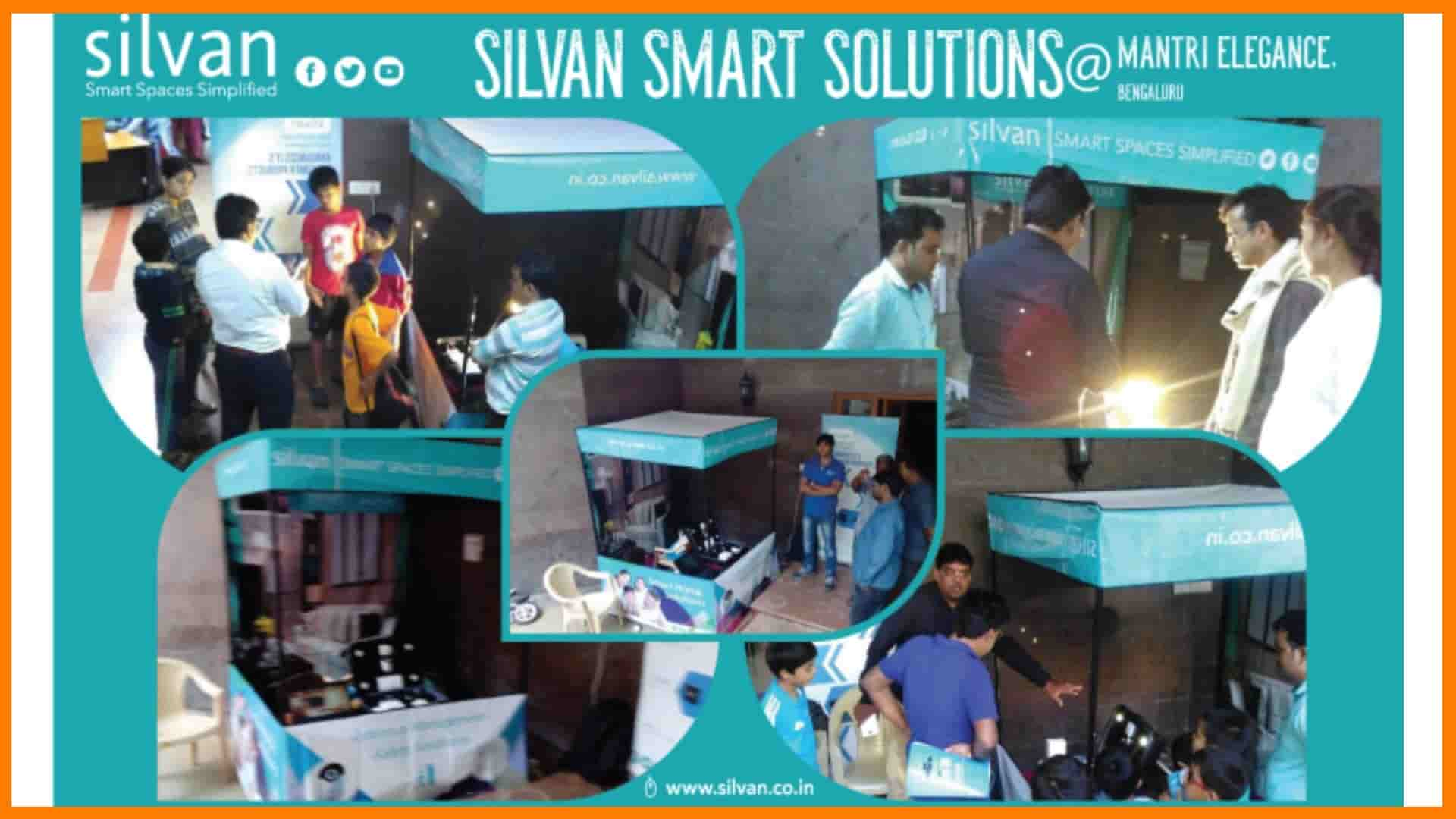
The startup, which has raised a sum of Rs 13.5 crore since its origin, has as of late disclosed four new savvy home smart items it has been working on for a couple of years. One such innovation is CBell, a WiFi video doorbell, which calls the proprietor's telephone when the doorbell is squeezed and work using an application empowered security framework. The app helps against undesirable interruptions and dangers, for example, gas spillages and fires.
"We likewise have an excitement about items like the zPly, which is an advanced music zoning framework that streams and plays, spreads away music anyplace inside the house, and Lumos, a simple retrofit light computerization which can consequently diminish and light up lights in various pieces of the house through a couple of taps on a cell phone; this can be utilized through regular switches," said Avinash Gautam, CEO of Silvan Innovation Labs. The organization's USP is that its items are practical, with a value scope of Rs 12,000-50,000, bringing about footing in level-2 and level-3 towns.

SharpNode
SharpNode was established in June 2014 by Mohit Agnihotri. As of now, this home solution company has an item that screens homes and gives control and security over electric machines through the cell phone or PC over the SharpNode application. SharpNode depends on the concept of the Internet of things. Dealing with items including chip, microcontrollers, sensors, incorporated circuits, remote gadgets like WLAN, Bluetooth, and so forth, which are central segments for associating things around you to a cloud-based web interface.
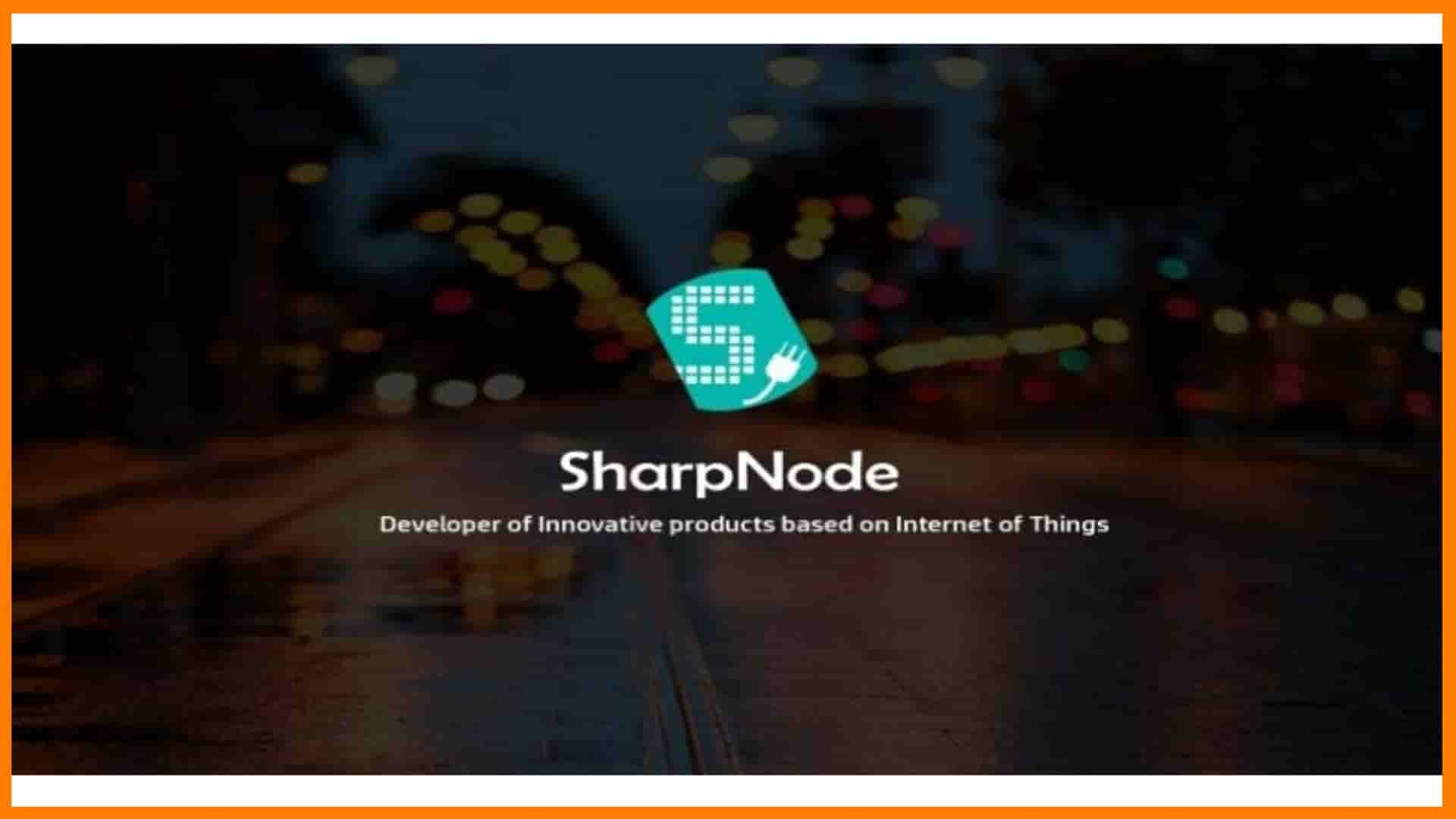
"We as a whole are savvy enough to realize that the present market is flooding with new businesses. Investigate every one of them, we found that none of them furnish the arrangement with such a reasonable cost with no trade-off in quality and unwavering quality. Following 'Make in India' we have 'Worth FOR MONEY' items," Mohit says.
Home Brain
Gurgaon-based Home Brain is the brainchild of NetWorld Inc, an IT organization empowering mechanization counseling, structuring, and coordination with hands-on involvement in the present innovation field. Its offerings include Security Brain, Lighting Brain, Entertainment Brain, Climate Brain, and Appliance Brain.
Cubical Labs
New Delhi-based Cubical Labs is a youthful startup by three IIT-Guwahati graduates – Swati Vyas, Dhruv Ratra, and Rahul Bhatnagar. It was established in November 2013 and offers an answer for controlling Electrical Appliances from anywhere, monitoring the vitality use, integration with various stages, for example, IP cameras, and drape nearer screens.
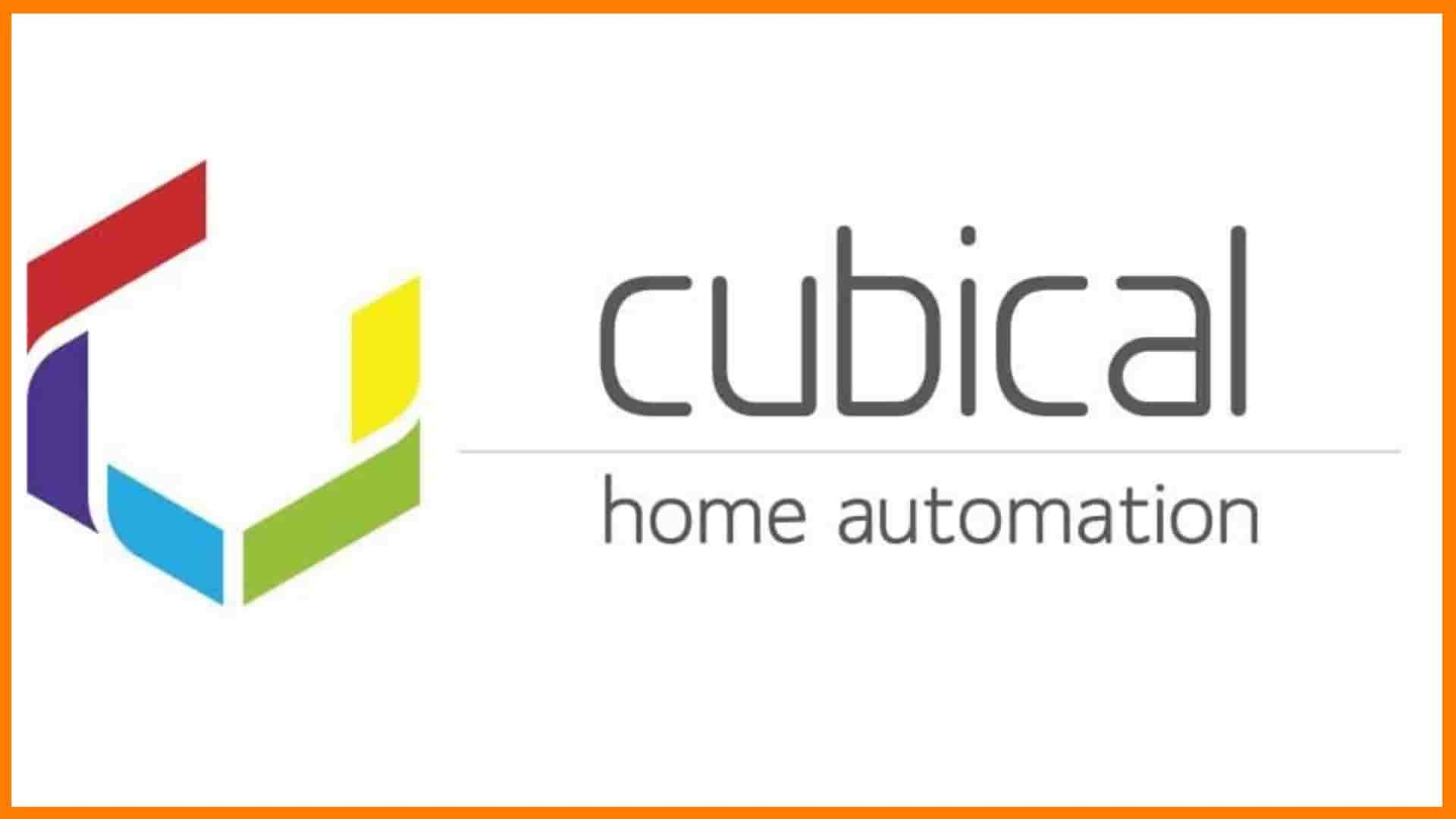
The startup has protected correspondence convention, Cube-R, which it professes to be increasingly reasonable for the Indian market due to less information utilization and its capacity to incorporate with different conventions. The startup began by offering solutions in Delhi – NCR and Mumbai. Over the last year, Cubical Labs built a wide system of wholesalers and sellers in 5 states (14 urban areas) in India. The startup plans to extend to 20 states alongside a couple of Southeast Asian and Middle Eastern nations.
Thasmai Automation
Bangalore-based Thasmai offers home computerization for you by making items and frameworks. Lighting controls, music, home theater, atmosphere control, security – even iPads, iPhones and Android cell phones and tablets – a Smart house by Thasmai makes customized encounters that upgrade your life and include solace, reserve funds, accommodation, and genuine feelings of serenity. It offers automation for the home segment, lighting automation, safety and security (CCTV, fire alarm, and access and attendance frameworks).
Established in 2010 by Karigirish Murthy, Thasmai is one of the rising players in India's home computerization showcase. Having its essence in 8 significant urban communities of India, Thasmai banded together with the best in breed organizations from Philips and Crabtree for lighting mechanization, Harman International (JBL, Revel, Infiniti, Synthesis) for Home Entertainment Solutions, to Honeywell for home security arrangements.
Metagan Technologies Private Limited
Bengaluru-based Metagan is taking a shot at secluded IoT answers for your home by re-evaluating the equipment and programming stages for IoT. It uses local protected advancements and open-source advances. The startup was established in 2015 by Ganesh Prasad Kumble. Its offerings include Mera™ Zoom Security Systems, which is utilized for well-being and security. The item's highlights include:
"The point of Metagan Technologies is to give basic, secure, and standard computerization answers for the world. This requires joint effort and association among individuals and associations with a mutual vision of what could be. Our association's responsibility is obvious in our ever progressed worldwide portfolio and ever-prepared spotlight on client's prerequisites and plannings," Ganesh says.
Expected Growth Of Smart Home Market In India
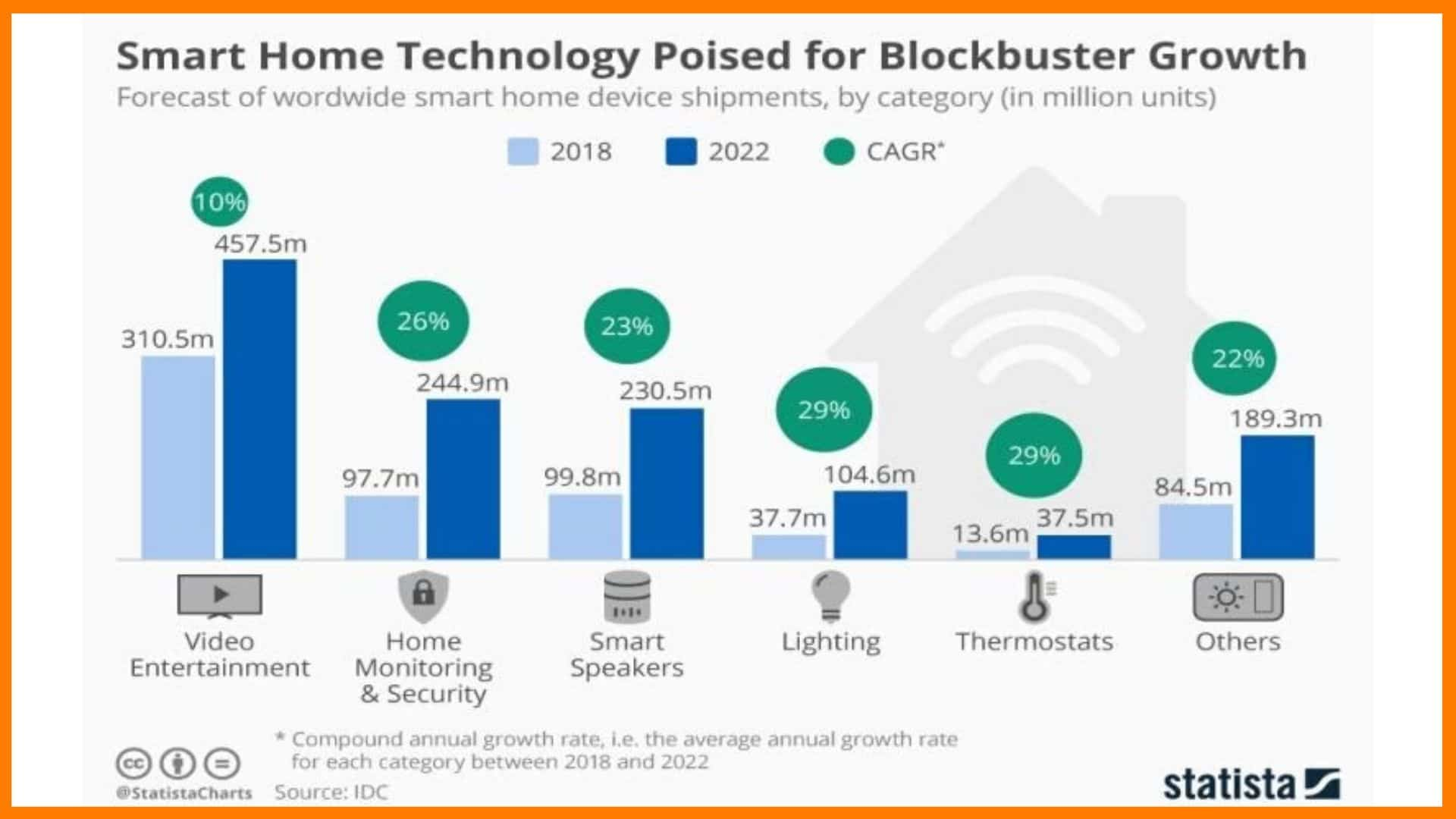
A smart home is a home with better, quicker, and improved working capacities and execution. In a savvy home, electronic gadgets, for example, cooler, TV, cooling (heating, ventilation, and cooling (HVAC)), lighting, and camera frameworks are typically controlled remotely by the cell phone. Home robotization is the connection of a few machines for controlling gadgets utilized in a home through a system over coaxial link, electrical power wiring, infrared, radio recurrence, or some other medium. The smart home market is assessed to arrive at an estimation of INR 4.2 trillion by 2023 while developing at a compound yearly development rate (CAGR) of ~14.77% from 2018.
In India, the savvy home market is in its nascent stages and is relied upon to increment at a surprising development rate in the coming years. Presently, the infiltration level of smart homes is higher in Indian metro urban areas like Bangalore, Delhi, Mumbai, and Pune, and records for the larger part of the Smart home market. Smart lighting, savvy speakers, smart indoor regulators, smart home center point, and Smart observation are a portion of the significant smart home contributions in the nation. Under the Make in India program, the Government of India is taking estimates, for example, a decrease in traditional obligation on media transmission items to support the gadgets producing segment.
FAQs
What is the future of smart homes?
Smart security cameras could be the future of home security. Artificial Intelligence will only become more important in future tech, especially within our homes. There are a plethora of home security devices out there but AI integration into them might be the future.
What are the advantages of smart homes?
Advantages of smart homes:-
- Conveniently Protect Your Home and Belongings
- Keep an Eye on Your Kids, Pets, and Aging Parents
- Trim Your Energy Bills
- Answer the Door from Anywhere
- Make Your Home Awesome
What are the disadvantages of smart homes?
Disadvantages of Smart Home Technology:-
- Significant installation costs
- Reliable internet connection is crucial
- Security issues
- Technological problems in connected homes
- You may lock yourself out of your own house

Must have tools for startups - Recommended by StartupTalky
- Convert Visitors into Leads- SeizeLead
- Website Builder SquareSpace
- Run your business Smoothly Systeme.io
- Stock Images Shutterstock






